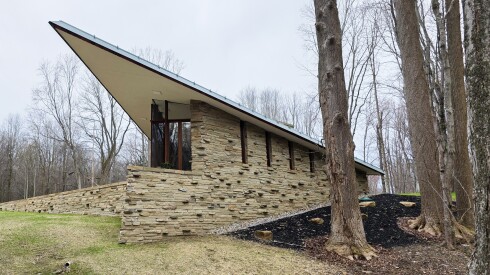Occupying a prominent space between Brandenburg Gate and Potsdamer Platz, this memorial (also known as the Holocaust-Mahnmal, or Holocaust Memorial) has almost 3,000 gray oblong pillars (stelae), arranged at varying heights, that form a kind of labyrinth intended to reference the disorientation felt by Europe’s hunted Jewish population. Designed by New York architect Peter Eisenman, it opened in 2005. The effectiveness of the labyrinth is arguable; you may see groups of teenagers playing tag and picnicking on and among the blocks. However, there’s no denying the power of the site’s underground information center, which relates some of the life stories of Holocaust victims. Several other smaller but related memorials are nearby, dedicated to homosexuals, gypsies, and victims of National Socialist euthanasia killings.
More Recommendations
Denkmal für die Ermordeten Juden Europas | Memorial to the Murdered Jews of Europe
Occupying a prominent space between Brandenburg Gate and Potsdamer Platz, this memorial (also known as the Holocaust-Mahnmal, or Holocaust Memorial) has almost 3,000 gray oblong pillars (stelae), arranged at varying heights, that form a kind of labyrinth intended to reference the disorientation felt by Europe’s hunted Jewish population. Designed by New York architect Peter Eisenman, it opened in 2005. The effectiveness of the labyrinth is arguable; you may see groups of teenagers playing tag and picnicking on and among the blocks. However, there’s no denying the power of the site’s underground information center, which relates some of the life stories of Holocaust victims. Several other smaller but related memorials are nearby, dedicated to homosexuals, gypsies, and victims of National Socialist euthanasia killings.
The Berlin Holocaust Memorial
The Memorial to the Murdered Jews of Europe also known as the Holocaust Memorial consists of a 19,000 squares meters (almost 6,000 squares feet) covered with 2,771 concrete slabs arranged in a grid pattern on a sloping field.
Descent into the Maze
The Memorial to the Murdered Jews of Europe, also known as the Holocaust Memorial, was designed by architect Peter Eisenman and engineer Buro Happold. It is a series of concrete slabs, or “stalea,” of various sizes positioned in such a way that, as you approach it, you have no idea the depth to which you will eventually descend. Covering 4.7 slopping acres, this memorial, rather than symbolic, was created to reproduce the chaotic and confusing experience of a holocaust victim. At every turn, the tourist or memorial observer is deeper into the labyrinth as stalea begin to tower above. No end is in sight. The descent happens quickly. The curving platform changes slopes suddenly. The gray gravestone-like monuments are stark and silent, offering no help or hope. Beneath these monuments is the holocaust museum, where one can view pictures and hear stories and where the stalae hang from the ceiling—as deep below the ground as they are high above it. It is a truly engaging and heart-rending journey.
Remembrance
The Holocaust Memorial is one of the most important memorials to the murdered Jews of Europe, mainly for its location, between the Brandenburg Gate and Potsdamer Platz in the heart of Berlin. The Memorial consists of the Field of Stelae, designed by Peter Eisenman, and the subterranean Information Centre. It is free. The Field of Stelae contains 2,700 concrete slabs (stelae) that are arranged in a grid pattern, and visitors can walk through them. While walking through, the feeling is of a graveyard, of loss and suffocation, and it captures the tragedy of the holocaust. Underneath the memorial site, an information center contains several rooms—rooms of names, families who were killed, sites of concentration camps, and even voices of survivals. This site is a must for every human being, for the history of the world.
Somber Memorial
The memorial consists of 2,711 concrete slabs arranged in a grid pattern on a five-acre sloping field. It has been plagued by controversy from inception: criticism has included (but has not been limited to): lacking handicap access to… utilizing materials manufactured by companies that profited from the holocaust to… failing to acknowledge other (non-Jewish) victims of the holocaust, to… The memorial is out-in-the-open and located in a busy section of Berlin, a constant reminder of the past. What to do in Berlin: http://bit.ly/18OBQPT
A Solemn Reminder in the Heart of Berlin
This controversial memorial is located not far from the Branderburg Gate. Controversy aside, walking amidst the stelae is a somewhat disorienting experience that inevitably serves as a solemn reminder of the Holocaust.
Time to Reflect
This is one of the most moving monuments I’ve seen anywhere. A square city block is filled with large cement blocks of various heights, as alleyways between roll up and down, creating a maze of stark gray cement. Spend some time roaming throughout alone.























